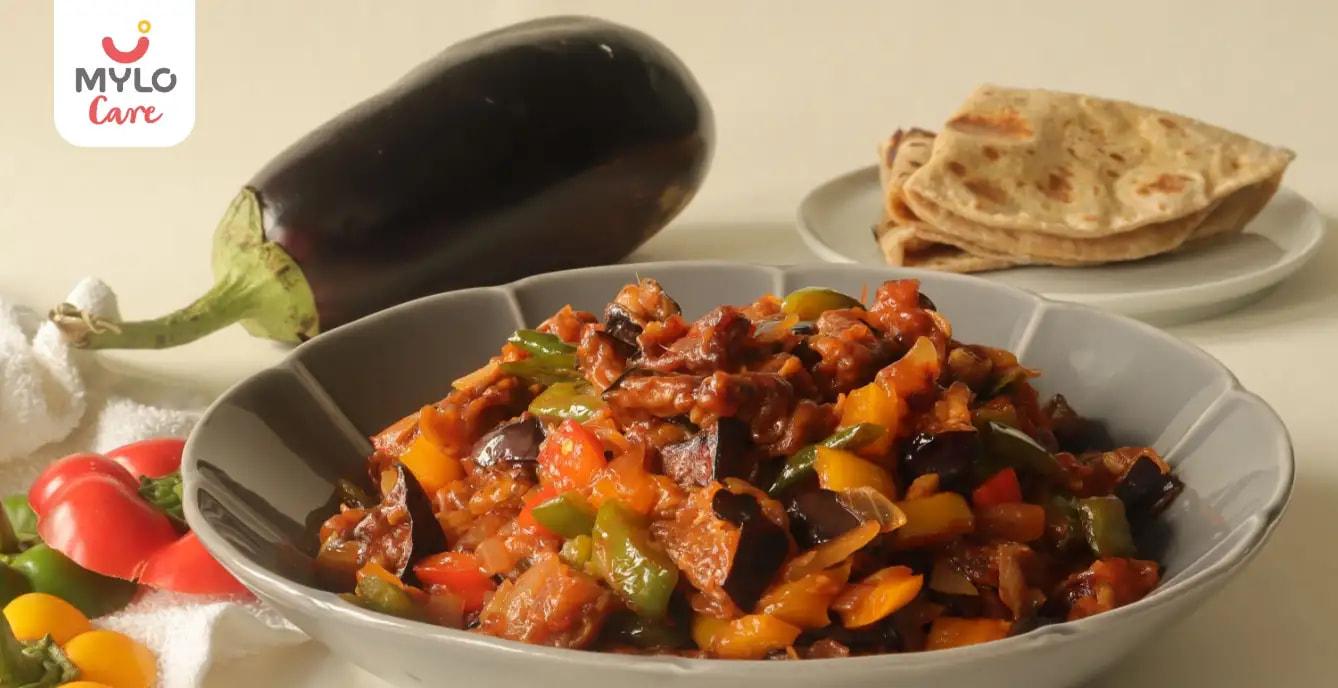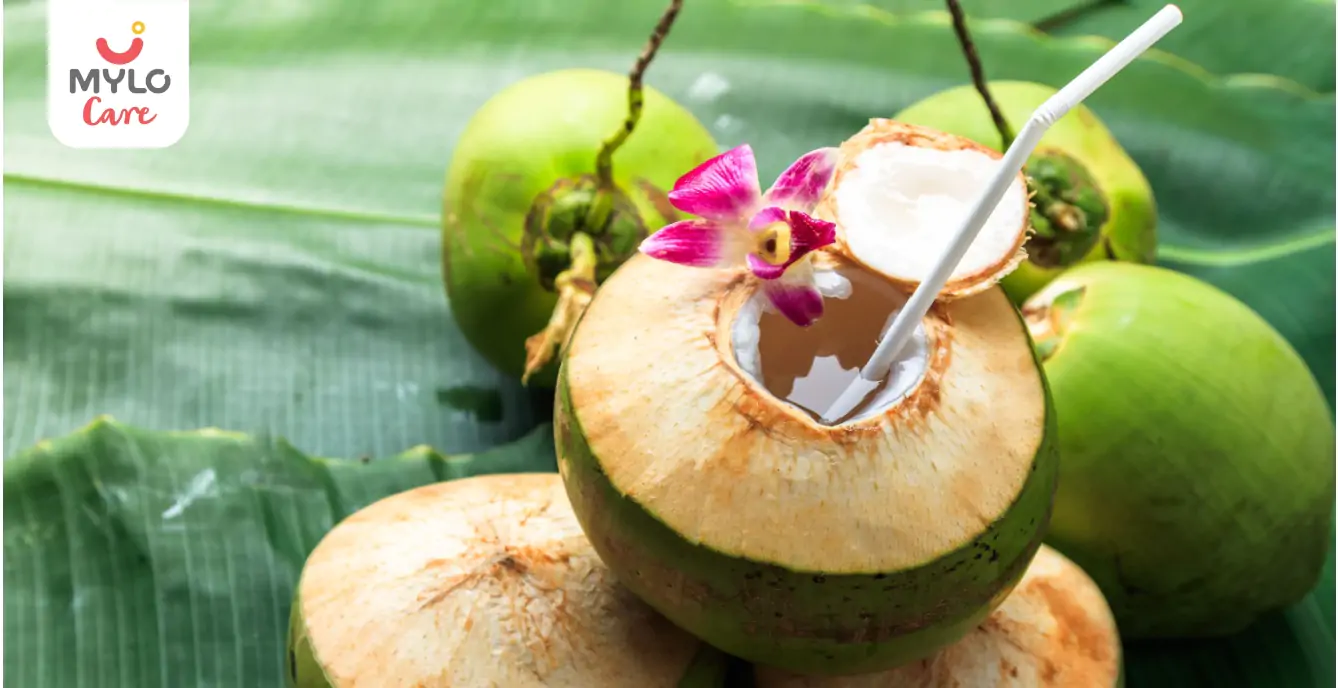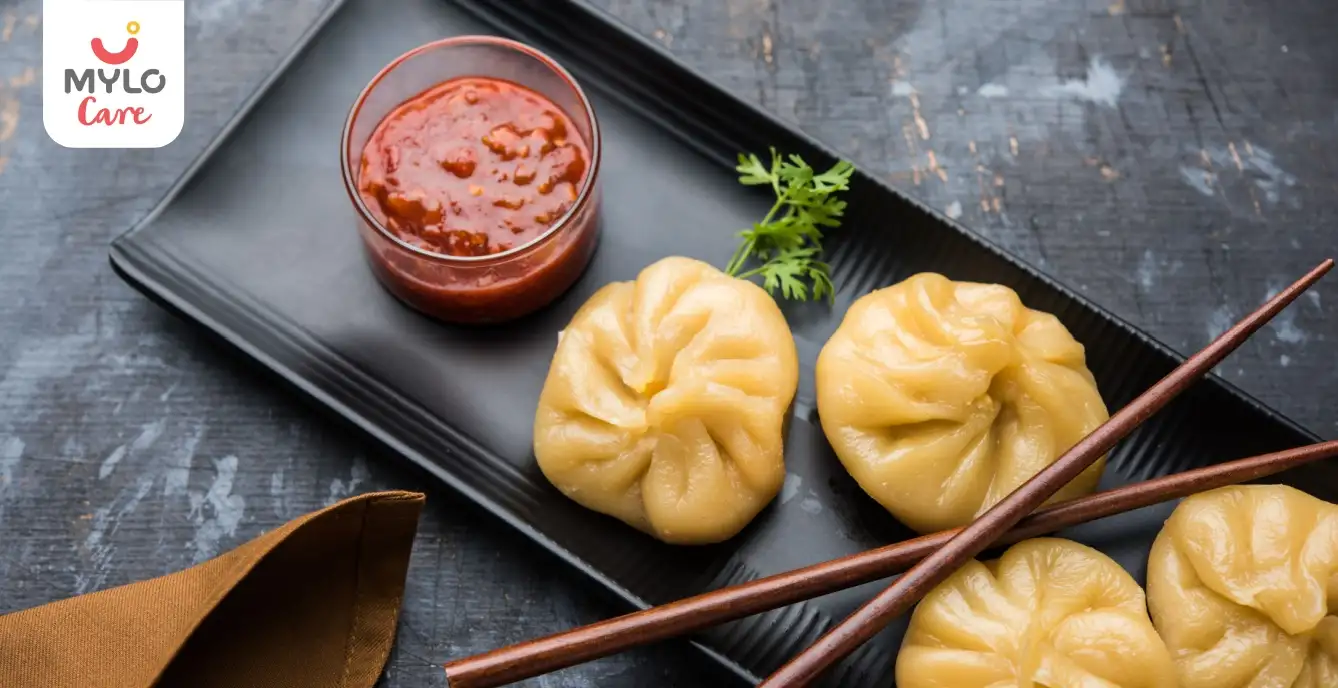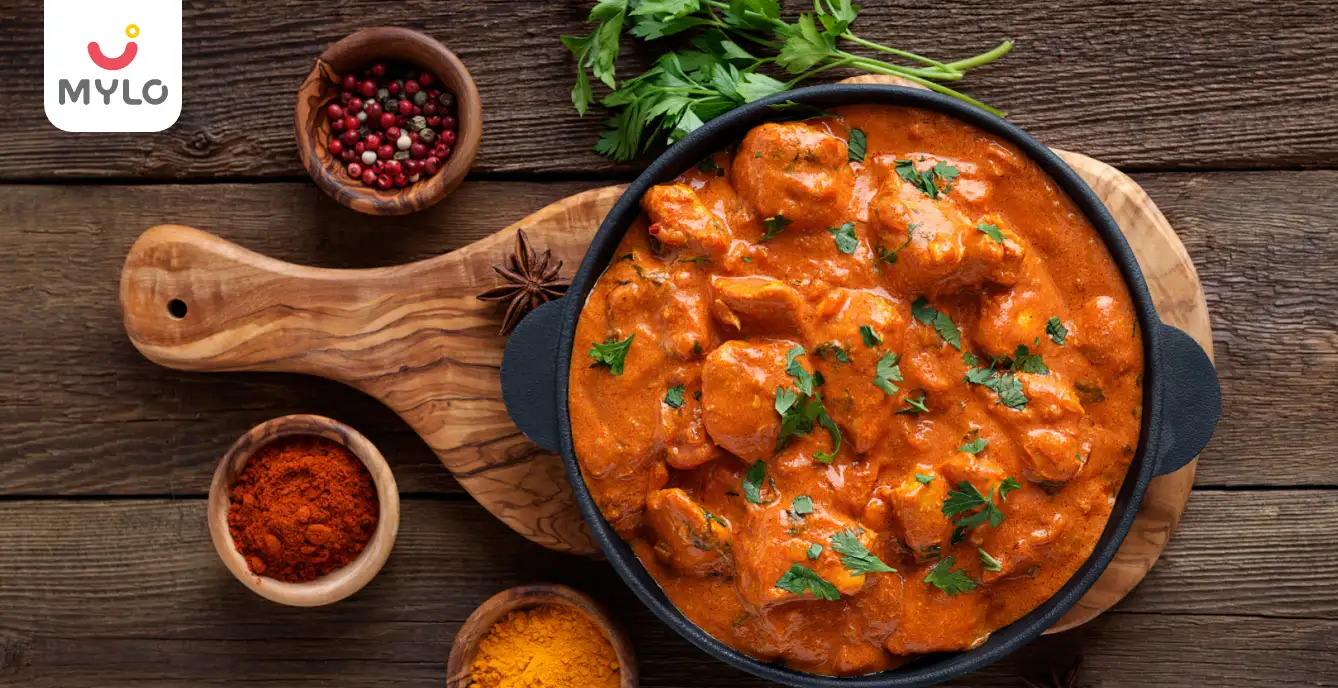Home

Food Cravings

The Pros and Cons of Consuming Brinjal in Pregnancy
In this Article

Food Cravings
The Pros and Cons of Consuming Brinjal in Pregnancy
Updated on 7 March 2024
When it comes to pregnancy, a woman's diet plays a crucial role in ensuring the health and well-being of both her and the baby. There are numerous fruits and vegetables that are highly beneficial during this time, but there are also certain foods that need to be consumed with caution. Brinjal in pregnancy, also known as eggplant, is one such vegetable that often raises questions among expectant mothers.
In this article, we will explore the pros and cons of consuming brinjal during pregnancy to help you make an informed decision.
Is brinjal good for pregnancy?
It’s common for pregnant women to wonder can we eat brinjal during pregnancy. Let’s find out the answer. Brinjal is a rich source of various vitamins and minerals, making it a potentially beneficial vegetable to include in a pregnant woman's diet.
It contains vitamins A and C, as well as folate, all of which are essential for the healthy development of the baby. Additionally, brinjal is low in calories and high in fiber, which can aid in maintaining a healthy weight during pregnancy and preventing constipation.
However, it's important to note that brinjal also contains certain compounds that may have negative effects during pregnancy. One such compound is solanine, which is known to have toxic properties. Solanine can cause digestive issues, such as indigestion and bloating, and may also interfere with the absorption of essential nutrients. Therefore, it is crucial to consume brinjal in moderation and with caution.
You may also like: Bitter Gourd During Pregnancy: Benefits and Precautions You Should Know
What are the benefits of brinjal during pregnancy?
Let us understand the key benefits of consuming brinjal or eggplant during pregnancy:
1. Rich in nutrients
Brinjal is a good source of vitamins A and C, as well as folate, which are essential for the healthy development of the baby.
2. Low in calories
Consuming brinjal can help maintain a healthy weight during pregnancy, preventing excessive weight gain.
3. High in fiber
The high fiber content in brinjal can help prevent constipation, a common issue during pregnancy.
4. Antioxidant properties
Brinjal is rich in antioxidants, which can help protect against oxidative stress and promote overall well-being.
5. Versatility
Brinjal can be prepared in various ways, allowing expectant mothers to enjoy its benefits in different dishes.
What are the risks of consuming brinjal in pregnancy?
Although consuming brinjal has several benefits for pregnant women, it also carries certain risks such as:
1. Toxic compounds
Brinjal contains solanine, a toxic compound that can cause digestive issues and interfere with nutrient absorption.
2. Allergic reactions
Some individuals may be allergic to brinjal, which can lead to symptoms such as itching, swelling, and difficulty breathing.
3. Gastrointestinal problems
Consuming brinjal in large quantities can cause digestive problems, including indigestion and bloating.
4. May increase the risk of gestational diabetes
Due to its high glycemic index, brinjal may increase blood sugar levels and potentially contribute to gestational diabetes.
5. Possible contamination
Brinjal is sometimes contaminated with pesticides, which can pose a risk to both the mother and the baby. It is important to choose organic and properly washed brinjal to minimize this risk.
You may also like: Arbi in Pregnancy: The Ultimate Guide to Benefits and Risks
Precautions to follow while eating brinjal in pregnancy
Here are some tips pregnant women should keep in mind while consuming brinjal:
1. Moderation
It is important to consume brinjal in moderation during pregnancy to avoid potential risks associated with its toxic compounds.
2. Cooking methods
Opt for cooking methods that require minimal oil and avoid deep-frying brinjal to keep it healthy.
3. Choose organic
Whenever possible, choose organic brinjal to minimize exposure to pesticides and other harmful chemicals.
4. Wash thoroughly
Properly wash brinjal before cooking to remove any potential contaminants.
5. Consult your doctor
If you have any concerns or pre-existing health conditions, it is always best to consult your healthcare provider before including brinjal in your diet during pregnancy.
You may also like: What Is the Best Diet Plan That You Must Consume During Pregnancy?
FAQ’s
1. Can we eat brinjal during pregnancy?
Yes, brinjal can be consumed during pregnancy, but it should be eaten in moderation and with caution. The benefits of brinjal, such as its nutrient content and fiber, can be advantageous for the health of both the mother and the baby. However, the potential risks associated with toxic compounds and allergies should not be overlooked. It is always best to consult with a healthcare professional before making any dietary changes during pregnancy.
2. Should we avoid brinjal during the first trimester of pregnancy?
The first trimester of pregnancy is a critical period of development, and many women are cautious about their diet during this time. While there is no definitive evidence suggesting that brinjal should be completely avoided during the first trimester, it is advisable to consume it in moderation due to the potential risks associated with its toxic compounds. As always, it is recommended to consult with a healthcare provider to ensure the best course of action for your individual pregnancy.
3. Can I eat baingan ka bharta during pregnancy?
Baingan ka bharta, a popular Indian dish made with roasted and mashed brinjal, is a flavorful and nutritious option to include in your pregnancy diet. However, it is important to keep a few things in mind. Ensure that the brinjal used in the dish is thoroughly cooked to eliminate any potential harmful bacteria or parasites. Additionally, use minimal oil and spices to keep the dish healthy and avoid any potential digestive issues. As long as these precautions are taken, baingan ka bharta can be enjoyed in moderation during pregnancy.
The Bottomline
Brinjal in pregnancy can be a beneficial vegetable due to its nutrient content and fiber. However, it is important to consume it in moderation and with caution. The potential risks associated with its toxic compounds and allergies should not be overlooked. As with any dietary changes during pregnancy, it is always best to consult with a healthcare professional to ensure the best course of action for your individual pregnancy. Remember, the key is moderation and mindful consumption.
References
1. Lunkenheimer HG, Burger O, Akhauri S, Chaudhuri I, Dibbell L, Hashmi FA, Johnson T, Little EE, Mondal S, Mor N. (2021). Tradition, taste and taboo: the gastroecology of maternal perinatal diet. BMJ Nutr Prev Health.
2. Chakrabarti S, Chakrabarti A. (2019). Food taboos in pregnancy and early lactation among women living in a rural area of West Bengal. J Family Med Prim Care.



Written by
Anandita Sharma
Drawing on more than a decade of expertise in administration, Anandita Sharma currently serves as a content operations e
Read MoreGet baby's diet chart, and growth tips

Related Articles
Related Questions
Influenza and boostrix injection kisiko laga hai kya 8 month pregnancy me and q lagta hai ye plz reply me

Hai.... My last period was in feb 24. I tested in 40 th day morning 3:30 .. That is faint line .. I conculed mylo thz app also.... And I asked tha dr wait for 3 to 5 days ... Im also waiting ... Then I test today 4:15 test is sooooo faint ... And I feel in ma body no pregnancy symptoms. What can I do .

Baby kicks KB Marta hai Plz tell mi

PCOD kya hota hai

How to detect pcos

Related Topics
RECENTLY PUBLISHED ARTICLES
our most recent articles

Why You Should Consider Drinking Coconut Water During Pregnancy?

Allergies
Sneezing During Pregnancy: Causes, Risks and Treatment

Comfort vs. Style: The Pros and Cons of Wearing Heels During Pregnancy

Food Cravings
A Mom-to-Be's Handbook to Safely Savoring Momos in Pregnancy

Diet & Nutrition
Chicken During Pregnancy: The Ultimate Guide to Safe and Nutritious Eating

Diet & Nutrition
How To Prepare Food For Your Infant/Toddler Safely? Here Are Some Tips That You Must Not Forget While Preparing Food
- Lactational Amenorrhea Method: A Safe and Effective Contraception for Postpartum Moms
- What to Do to Help Fall Asleep Faster During Pregnancy?
- Home Remedies to Control High Blood Pressure in Pregnancy
- Pizza During Pregnancy: Cravings, Comfort, and Caution for Moms-To-Be
- Baby Milestones for Development, Growth & Health in the First Year
- The Ultimate Collection of International Women's Day Quotes
- The A-Z Guide to Identifying Vegetables Name in English for Children
- Grapes in Pregnancy: The Ultimate Guide to Benefits & Precautions
- Postpartum Exercise: What to Know About Exercising After Pregnancy
- Baby Crawling: A Parent's Guide to Baby's First Moves
- Postpartum Diet Plan: Your Postpartum Nutrition Guide
- The Ultimate Guide to Crafting the Perfect Baby Photoshoot
- Lupride Injection: How It Works and What You Need to Know
- Why are Some Women Recommended HCG Injection During Pregnancy?


AWARDS AND RECOGNITION

Mylo wins Forbes D2C Disruptor award

Mylo wins The Economic Times Promising Brands 2022
AS SEEN IN
















- Mylo Care: Effective and science-backed personal care and wellness solutions for a joyful you.
- Mylo Baby: Science-backed, gentle and effective personal care & hygiene range for your little one.
- Mylo Community: Trusted and empathetic community of 10mn+ parents and experts.
Product Categories
baby carrier | baby soap | baby wipes | stretch marks cream | baby cream | baby shampoo | baby massage oil | baby hair oil | stretch marks oil | baby body wash | baby powder | baby lotion | diaper rash cream | newborn diapers | teether | baby kajal | baby diapers | cloth diapers |




